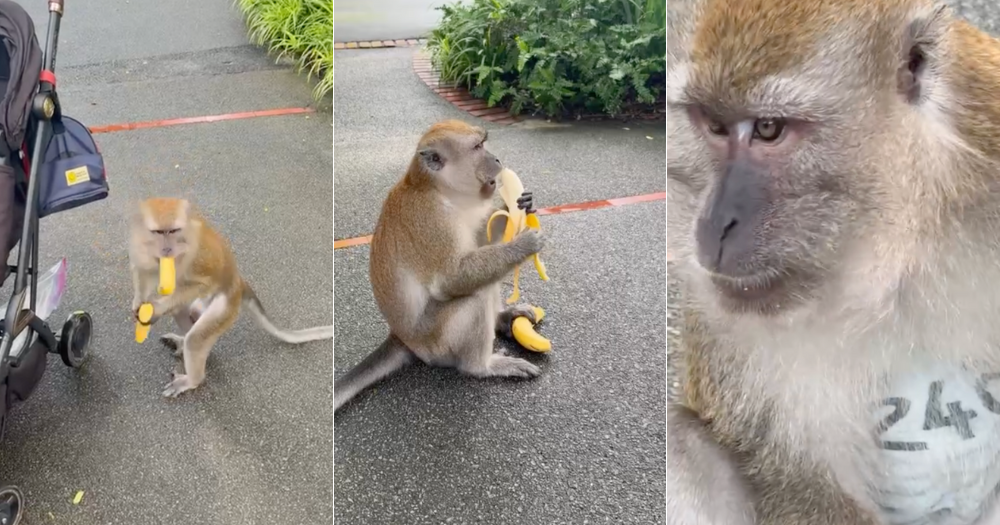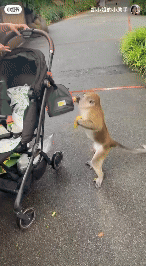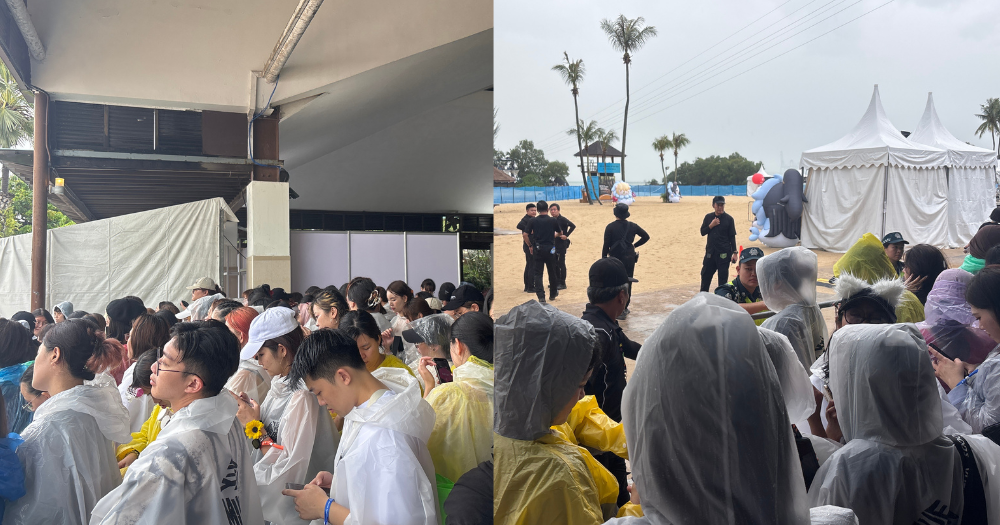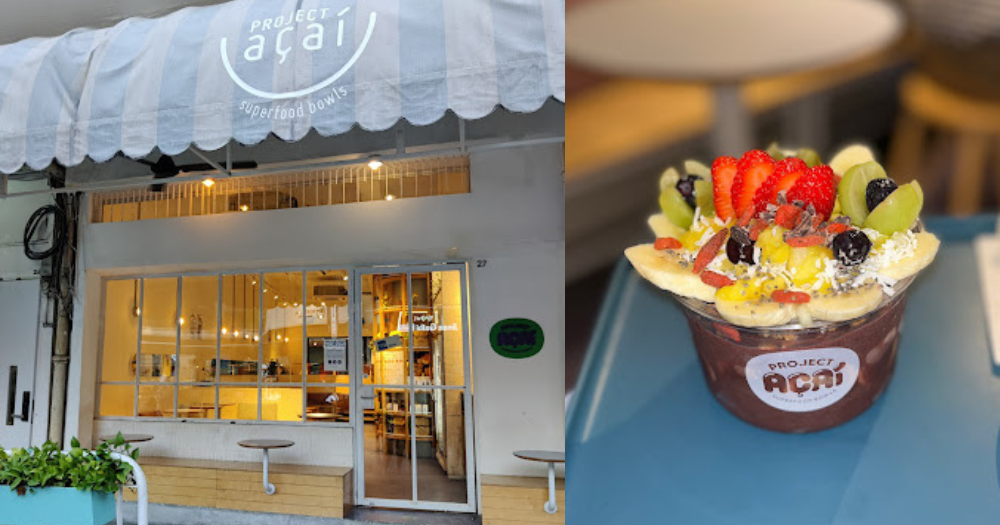S’pore Zoo visitor goes from exasperation at macaque eating bananas from child’s stroller to asking if they are tasty
What an emotional rollercoaster.

A chonky long-tailed macaque stealthily took two bananas from a child's backpack in a stroller at the Singapore Zoo.
The child's parent took to Xiao Hong Shu on Dec. 24, sharing a video of the encounter that documented the monkey's meal — and her bombarding it with questions.
"Don't take away my banana!"
In the video, a long-tailed macaque was seen pulling on a bag stored under a baby stroller before turning his attention to a small bag hanging on it.
Another woman in the video, who was holding onto a small child, said that the animal knew how to open the bag.
The monkey then opened the bag and took out two bananas.
"No! My banana!" cried the woman filming the monkey.
"Don't take away my banana! Oh my god." she shouted in Chinese.
"Are the bananas tasty?", "You're so fat"
As she filmed the monkey peeling the banana, she shared that she had brought them to eat at the zoo.
She then asked the monkey if the banana was nice, and why it had to eat the bananas that were meant for her child.
In the background, the child could be heard crying for banana at this point.
The woman continued speaking to the monkey – commenting that it's so fat before asking again if the bananas were tasty.
In the video, the monkey was preoccupied by its loot and did not show any aggression towards the woman.
The woman's video zoomed into the monkey's face as she helplessly watched it finish both bananas quickly.
 Gif via video by 胡小姐的小助/Xiao Hong Shu
Gif via video by 胡小姐的小助/Xiao Hong Shu
Advisory from Mandai Wildlife Group
The monkey spotted in the video is a Long-tailed Macaque, one of Singapore's native primate species.
In response to Mothership’s queries, a spokesperson at Mandai Wildlife Group shared that the parks at Mandai Wildlife Reserve are home to many species of local wildlife.
The spokesperson added that it is communicated to guests to be conscious about giving local wildlife space, like observing them from a distance, instead of chasing after or moving closer to them.
Trained wildlife rangers are also deployed in the parks to act as guides to prevent negative interactions between native wildlife and guests.
In addition, there are signs placed around the parks to guide guests on what they should do if they encounter wild macaques.
The spokesperson also provided the following advice:
“For the safety of guests and the welfare of native animals like wild macaques, we encourage guests to stay alert and take note of the following when exploring our parks:
- Keep a distance from wild macaques and do not use flash photography.
- Move calmly and avoid making eye contact with them. Do not stare, chase, touch or corner the macaques.
- Do not feed the macaques. They have enough food in the wild.
- Do not leave belongings unattended – if there are food items, keep them well-packed in the bag. Avoid carrying food and drinks in hand or plastic bags.
- Throw all food waste into the monkey-proof bins around the parks.”
Top photos via 胡小姐的小助/Xiao Hong Shu
MORE STORIES




















